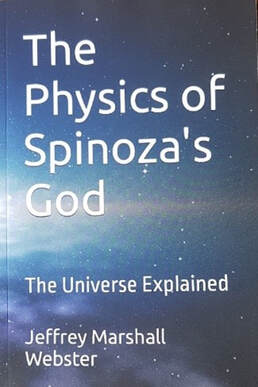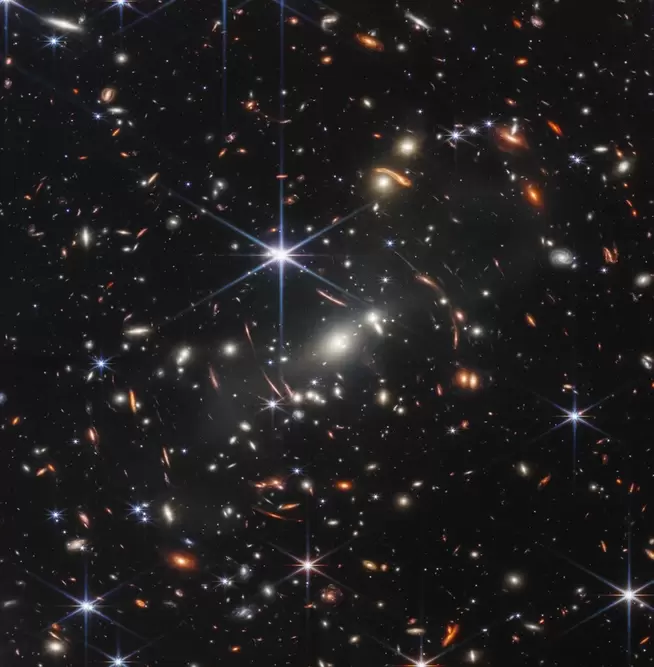- Home
-
Leven
-
Geschriften
- TIE >
- KV >
- PPCM
- TTP >
- TP >
- E >
- EP >
-
NS - Voorreeden
>
- NS_VR01
- NS_VR02
- NS_VR03
- NS_VR04
- NS_VR05
- NS_VR06
- NS_VR07
- NS_VR08
- NS_VR09
- NS_VR10
- NS_VR11
- NS_VR12
- NS_VR13
- NS_VR14
- NS_VR15
- NS_VR16
- NS_VR17
- NS_VR18
- NS_VR19
- NS_VR20
- NS_VR21
- NS_VR22
- NS_VR23
- NS_VR24
- NS_VR25
- NS_VR26
- NS_VR27
- NS_VR28
- NS_VR29
- NS_VR30
- NS_VR31
- NS_VR32
- NS_VR33
- NS_VR34
- NS_VR35
- NS_VR36
- NS_VR37
- NS_VR38
- NS_VR39
- NS_VR40
- NS_VR41
- NS_VR42
- NS_VR43
- Filosofie
- Blog
-
Lezen
-
Omtrent Spinoza
>
- Tolstoi en Spinoza
- Spinoza en schriftvervalsing
- Ieder zijn Spinoza
- Mijn avontuur met het Operaportret
- Over de twee Spinoza's
- Brevieren... in Spinoza
- Boeken die het leven veranderen?
- Spinoza-light
- De bronzen denker aan de Paviljoensgracht in den Haag
- Spinoza en de Schone Letteren
- Benjamin DeCasseres
- Theun de Vries over Spinoza
- De ethiek van Robert Misrahi in het spoor van Spinoza
- Spinoza's Lieux de mémoire
- De tekstdoolhof van Pierre Bayle
- Vermeer en Spinoza
- Gérard de Nerval, romantische naturalist
- Graaf Stanislaus von Dunin-Borkowski S.J., Spinoza-pionier
- Lord Bertrand Russell
- Harold Foster Hallett (1886-1966)
- Het dodenmasker van Spinoza...?
- De Wereldbibliotheek en Spinoza
- Spinoza en het humanisme
- In memoriam Robert Misrahi
- De niet genoemde
- Pierre Bayle: République des Lettres
- Ed Witten, de snaartheorie en Spinoza
- Hobbes-Leviathan
- Bibliografie en links
- De interlineaire Spinoza >
-
Omtrent Spinoza
>
- Bibliofilie
- Kalender/Contact

I came across an essay by a certain Jeffrey Marshall Webster. The title of his paper is well chosen, ‘Physics and Spinoza’ ... you immediately come to Einstein who, as all Spinoza adepts know, confessed in writing his 'faith in the God of Spinoza'. However, I cannot take the overly assertive subtitle of the essay seriously... but because it is about our philosopher and physics/astrophysics also fascinate me, I will quickly order the new 'Spinoza publication' from Amazon. The next day the mail carrier puts it in my mailbox.
It is a slim thing of 103 pages, set in large type, self-published by the author and printed (sloppily) by Kindle, Amazon's 'publishing arm'. The back cover tells me that the author is American, one of the approximately 30,000 inhabitants of the cotton town of Statesboro, located in the southeast of the conservative state of Georgia, and looks like a cowboy. The World Wide Web provides no useful information about this Webster...am I in it for the money and effort?
It is a slim thing of 103 pages, set in large type, self-published by the author and printed (sloppily) by Kindle, Amazon's 'publishing arm'. The back cover tells me that the author is American, one of the approximately 30,000 inhabitants of the cotton town of Statesboro, located in the southeast of the conservative state of Georgia, and looks like a cowboy. The World Wide Web provides no useful information about this Webster...am I in it for the money and effort?
 Jeffrey Marshall Webster
Jeffrey Marshall Webster
I will only find that out when I finish Webster's booklet. I quickly notice that the author is versed in physics and familiar with the history of Western philosophy. A good start to read further.
Webster's 'explanation of the universe' takes up about sixteen chapters and eighty pages. He then concludes his essay with an Appendix-Science, an inventory of all the physics doctrines that should underpin his explanation. I learn in easy-to-read language about the spectacular developments in physics since around 1900 and about recent hypotheses about aspects of the origin and evolution of the universe. In this context, the author is not in favour of the 'Standard Theory' that continues to accept the Big Bang as the origin of the universe, although that theory repeatedly had to be modified with new hypotheses to keep it afloat. Webster prefers the Continuous Creation Theory and the Space Resonance Theory (Milo Wolff), among other things because both theories can be explained by assuming the existence of Zero-Point Energy. We will talk about the first theory in a moment, the second states that simultaneous phenomena can influence each other in a non-causal way. (Both theories activate a Spinoza flashing light...)
Zero-point Energy is the cornerstone of Webster's 'explanation of the universe' because, according to him, it can also explain the dynamics of the universe through the 'emergence theory' of physical phenomena in the field of that ZPE.
Zero-point Energy (henceforth abbreviated as ZPE) is the cornerstone of Webster's 'explanation of the universe' because, according to him, it can also explain the dynamics of the universe through the 'emergence theory' of physical phenomena in the field of that ZPE.
ZPE may be defined as the smallest possible energy state of an atom or of a molecule. The concept was developed by the German physicist Max Planck in 1900 and German physicists called it Nullpunktsenergie. Zero-point physicists claim that the space of the universe is not a vacuum but an extremely dense plenum of zero-point energy. With that theory they were able to solve inexplicable problems that manifested themselves in other research domains of physics. The NPE hypothesis therefore gained credibility and received considerable support.
Based on recent physical theories, according to Webster, it can be explained how energy, here ZPE, organizes itself into increasingly complex configurations of matter and intelligence that are infinite in time, space, and possibilities. In his essay, the author also emphasizes the possibility of 'tapping' ZPE. Infinite energy, communication and traveling at a speed of at least twenty million times the speed of light (!) is then possible, according to the author. It makes him euphoric:
'An unlimited supply of incredibly cheap, clean energy: what will this mean for the world? An explosion of economic activity never seen before; a much cleaner planet; and certain political and economic realignments when nations that depend on oil exports for their wealth and power see their main resource plummet in value, and nations that possess that ability to extract zero-point energy see their wealth and power soar. But there is a downside to zero-point energy. In the wrong hands it could power a doomsday weapon.' (p. 54)
Here, Webster gives us a look into his soul: it is the job of the USA, he believes, to be and remain the most powerful nation on the planet, to keep evil-minded nations under control and to save the world from destruction: undisguised supernationalism and white supremacy ideology! And furthermore, whether that energy tap is possible is doubted by many physicists. For science fiction authors, the dream of 'tapping zero-point energy' from an energy tank that never runs out became a grateful gift on which to hang their stories.
A second key ingredient in Webster's 'explanation of the universe' is a variant of the Intelligent Design (ID) hypothesis. The author humbly admits on page 93 that the ID hypothesis is a taboo for most physicists, but he himself remains in favour of it. For ID adherents, an explanation of the universe is inconceivable without the intervention of a Super-Intelligence. Biologists and physicists see evidence of ID everywhere, the author claims, and are now scientifically at the point of discovering the true nature of the Designer: that 'Intelligent Designer' is now understood as the guardian and fine tuner of physics process aimed at making the finality of carbon-based life possible, according to Webster. (Another Spinoza flashing light)
I have now read more than half of the essay and I wonder when Spinoza will enter this story... Well, he appears like a deus ex machina in the penultimate chapter, on page 71. Most of that chapter is filled by Webster with biographical data about our philosopher, and then he relates the matter and spirit generated by the ZPE to substance as Spinoza understood it. His overly brief and especially incomplete explanation suggests that he only knows Spinoza's metaphysics superficially, because Webster also does not notice that the Intelligent Design hypothesis is not at all in line with Spinoza's philosophy, especially because it introduces another transcendent creative God. The Resonance Theory that challenges causality is also a mockery of the Master's deepest convictions...
I am going to land: despite the flashing lights, I cannot really advise against reading the essay by the 'Bible Belter' from Statesboro Georgia. His essay is a mix of science and science fiction, topped with a philosophical sauce. But, even if you disagree with certain positions in an author's text, you always learn something: Webster gave me a clear refresher lesson in the history of modern physics/astrophysics and, moreover, he taught me that astrophysics, an 'exact' science, is a grab bag of hypotheses whose fathers fight each other as fiercely as the hypothesis builders in the human far from exact sciences.
And moreover, sci-fi is fun...
Willy Schuermans
6.11.2023
Webster's 'explanation of the universe' takes up about sixteen chapters and eighty pages. He then concludes his essay with an Appendix-Science, an inventory of all the physics doctrines that should underpin his explanation. I learn in easy-to-read language about the spectacular developments in physics since around 1900 and about recent hypotheses about aspects of the origin and evolution of the universe. In this context, the author is not in favour of the 'Standard Theory' that continues to accept the Big Bang as the origin of the universe, although that theory repeatedly had to be modified with new hypotheses to keep it afloat. Webster prefers the Continuous Creation Theory and the Space Resonance Theory (Milo Wolff), among other things because both theories can be explained by assuming the existence of Zero-Point Energy. We will talk about the first theory in a moment, the second states that simultaneous phenomena can influence each other in a non-causal way. (Both theories activate a Spinoza flashing light...)
Zero-point Energy is the cornerstone of Webster's 'explanation of the universe' because, according to him, it can also explain the dynamics of the universe through the 'emergence theory' of physical phenomena in the field of that ZPE.
Zero-point Energy (henceforth abbreviated as ZPE) is the cornerstone of Webster's 'explanation of the universe' because, according to him, it can also explain the dynamics of the universe through the 'emergence theory' of physical phenomena in the field of that ZPE.
ZPE may be defined as the smallest possible energy state of an atom or of a molecule. The concept was developed by the German physicist Max Planck in 1900 and German physicists called it Nullpunktsenergie. Zero-point physicists claim that the space of the universe is not a vacuum but an extremely dense plenum of zero-point energy. With that theory they were able to solve inexplicable problems that manifested themselves in other research domains of physics. The NPE hypothesis therefore gained credibility and received considerable support.
Based on recent physical theories, according to Webster, it can be explained how energy, here ZPE, organizes itself into increasingly complex configurations of matter and intelligence that are infinite in time, space, and possibilities. In his essay, the author also emphasizes the possibility of 'tapping' ZPE. Infinite energy, communication and traveling at a speed of at least twenty million times the speed of light (!) is then possible, according to the author. It makes him euphoric:
'An unlimited supply of incredibly cheap, clean energy: what will this mean for the world? An explosion of economic activity never seen before; a much cleaner planet; and certain political and economic realignments when nations that depend on oil exports for their wealth and power see their main resource plummet in value, and nations that possess that ability to extract zero-point energy see their wealth and power soar. But there is a downside to zero-point energy. In the wrong hands it could power a doomsday weapon.' (p. 54)
Here, Webster gives us a look into his soul: it is the job of the USA, he believes, to be and remain the most powerful nation on the planet, to keep evil-minded nations under control and to save the world from destruction: undisguised supernationalism and white supremacy ideology! And furthermore, whether that energy tap is possible is doubted by many physicists. For science fiction authors, the dream of 'tapping zero-point energy' from an energy tank that never runs out became a grateful gift on which to hang their stories.
A second key ingredient in Webster's 'explanation of the universe' is a variant of the Intelligent Design (ID) hypothesis. The author humbly admits on page 93 that the ID hypothesis is a taboo for most physicists, but he himself remains in favour of it. For ID adherents, an explanation of the universe is inconceivable without the intervention of a Super-Intelligence. Biologists and physicists see evidence of ID everywhere, the author claims, and are now scientifically at the point of discovering the true nature of the Designer: that 'Intelligent Designer' is now understood as the guardian and fine tuner of physics process aimed at making the finality of carbon-based life possible, according to Webster. (Another Spinoza flashing light)
I have now read more than half of the essay and I wonder when Spinoza will enter this story... Well, he appears like a deus ex machina in the penultimate chapter, on page 71. Most of that chapter is filled by Webster with biographical data about our philosopher, and then he relates the matter and spirit generated by the ZPE to substance as Spinoza understood it. His overly brief and especially incomplete explanation suggests that he only knows Spinoza's metaphysics superficially, because Webster also does not notice that the Intelligent Design hypothesis is not at all in line with Spinoza's philosophy, especially because it introduces another transcendent creative God. The Resonance Theory that challenges causality is also a mockery of the Master's deepest convictions...
I am going to land: despite the flashing lights, I cannot really advise against reading the essay by the 'Bible Belter' from Statesboro Georgia. His essay is a mix of science and science fiction, topped with a philosophical sauce. But, even if you disagree with certain positions in an author's text, you always learn something: Webster gave me a clear refresher lesson in the history of modern physics/astrophysics and, moreover, he taught me that astrophysics, an 'exact' science, is a grab bag of hypotheses whose fathers fight each other as fiercely as the hypothesis builders in the human far from exact sciences.
And moreover, sci-fi is fun...
Willy Schuermans
6.11.2023

